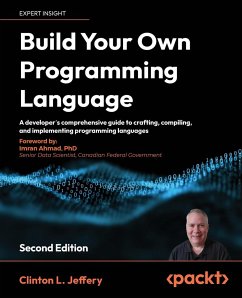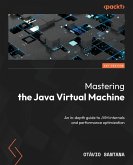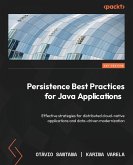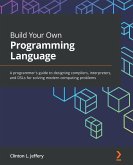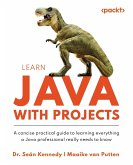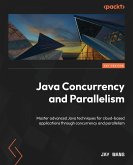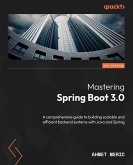Learn to design your own programming language in a hands-on way by building compilers, using preprocessors, transpilers, and more, in this fully-refreshed second edition, written by the creator of the Unicon programming language. Purchase of the print or Kindle book includes a free PDF eBook Key Features - Takes a hands-on approach; learn by building the Jzero language, a subset of Java, with example code shown in both the Java and Unicon languages - Learn how to create parsers, code generators, scanners, and interpreters - Target bytecode, native code, and preprocess or transpile code into a high-level language Book Description There are many reasons to build a programming language: out of necessity, as a learning exercise, or just for fun. Whatever your reasons, this book gives you the tools to succeed. You'll build the frontend of a compiler for your language and generate a lexical analyzer and parser using Lex and YACC tools. Then you'll explore a series of syntax tree traversals before looking at code generation for a bytecode virtual machine or native code. In this edition, a new chapter has been added to assist you in comprehending the nuances and distinctions between preprocessors and transpilers. Code examples have been modernized, expanded, and rigorously tested, and all content has undergone thorough refreshing. You'll learn to implement code generation techniques using practical examples, including the Unicon Preprocessor and transpiling Jzero code to Unicon. You'll move to domain-specific language features and learn to create them as built-in operators and functions. You'll also cover garbage collection. Dr. Jeffery's experiences building the Unicon language are used to add context to the concepts, and relevant examples are provided in both Unicon and Java so that you can follow along in your language of choice. By the end of this book, you'll be able to build and deploy your own domain-specific language. What you will learn - Analyze requirements for your language and design syntax and semantics. - Write grammar rules for common expressions and control structures. - Build a scanner to read source code and generate a parser to check syntax. - Implement syntax-coloring for your code in IDEs like VS Code. - Write tree traversals and insert information into the syntax tree. - Implement a bytecode interpreter and run bytecode from your compiler. - Write native code and run it after assembling and linking using system tools. - Preprocess and transpile code into another high-level language Who this book is for This book is for software developers interested in the idea of inventing their own language or developing a domain-specific language. Computer science students taking compiler design or construction courses will also find this book highly useful as a practical guide to language implementation to supplement more theoretical textbooks. Intermediate or better proficiency in Java or C++ programming languages (or another high-level programming language) is assumed.
Bitte wählen Sie Ihr Anliegen aus.
Rechnungen
Retourenschein anfordern
Bestellstatus
Storno

